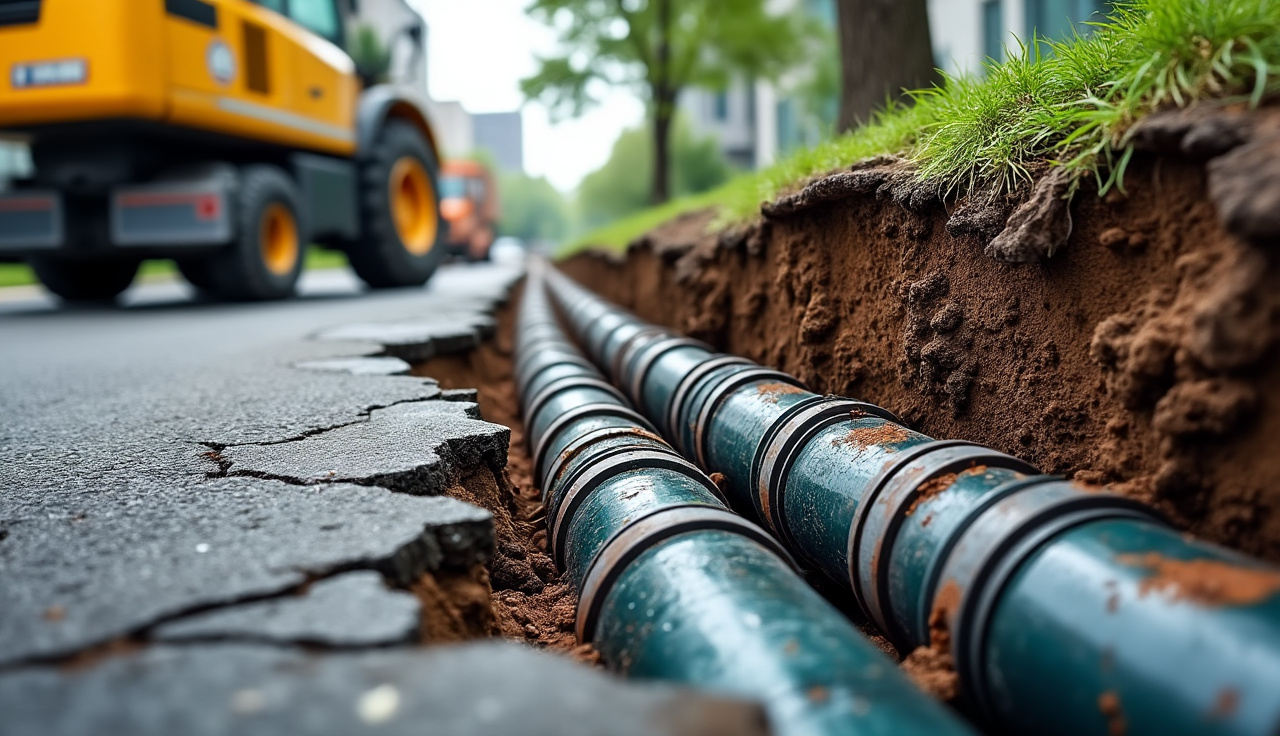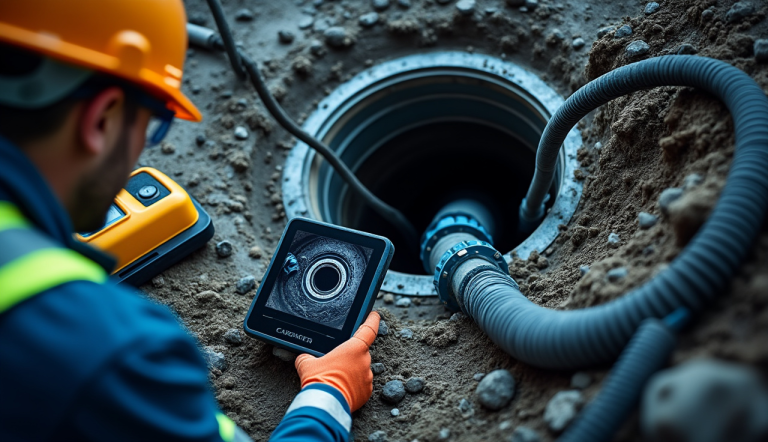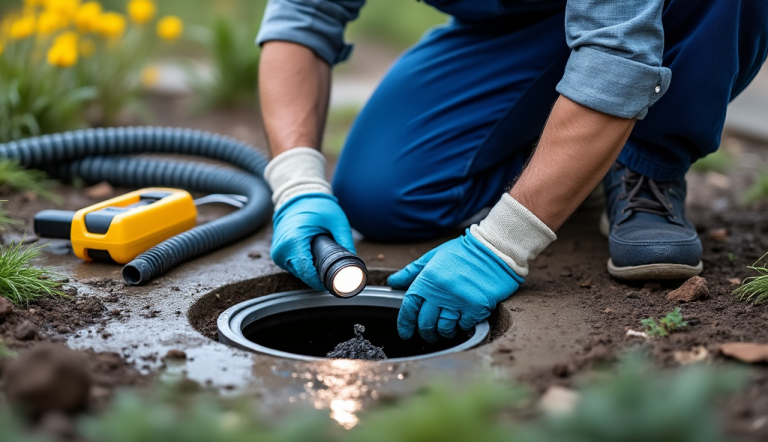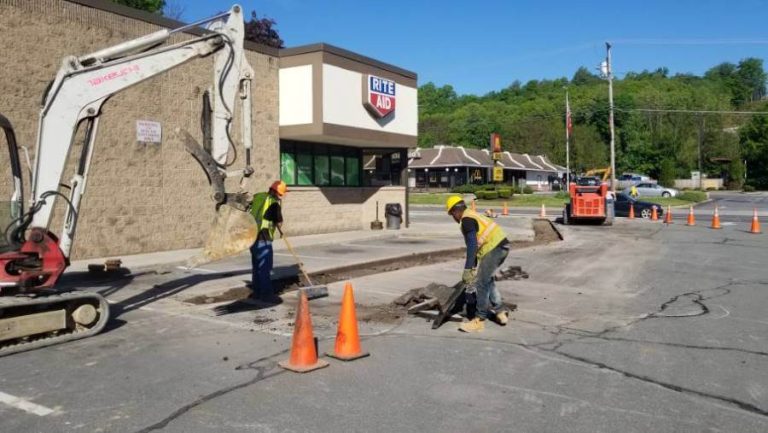Common Causes of Sewer Line Damage in the Area: 5 Alarming Factors to Consider
Sewer lines can face many problems. Understanding what causes these issues can help you keep your system in good shape. This guide will explore the Common Causes of Sewer Line Damage in the Area of Middletown, New York. You’ll learn what to look out for and how to prevent costly repairs.
Table of Contents
Key Takeaways
- Tree roots can invade pipes, causing blockages.
- Soil movement can put pressure on the pipes and lead to cracks.
- Heavy objects can crush or break sewer lines.
- Corrosion can weaken pipes over time.
- Improper installations can cause serious issues down the road.
For more detailed insights on sewer line maintenance practices, check out our comprehensive guide.
What Common Causes of Sewer Line Damage in the Area?
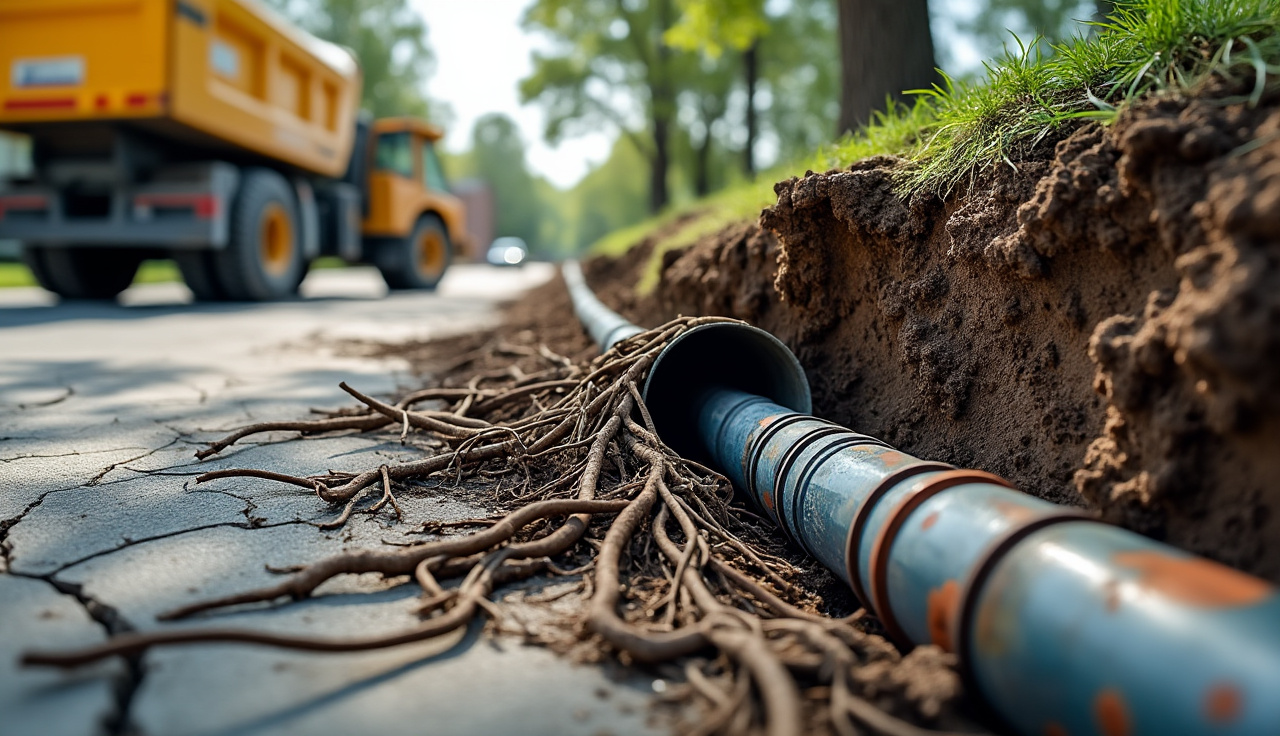
Sewer lines can break or leak for many reasons. Knowing these causes can help you act before serious problems happen. Here are the most common issues.
Tree Roots
Tree roots are a big problem for sewer lines. In Middletown, many homes have trees nearby. These roots grow to find water. When they reach pipes, they can break through and cause clogs. It is important to plant trees away from sewer lines.
How to Prevent Root Damage
One way to stop roots from invading your sewer lines is to use root killers. These products help eliminate roots before they can reach your pipes. Regular inspections can also catch root issues early.
Soil Movement
Soil can shift for many reasons. Heavy rain, earthquakes, or even nearby construction can cause soil to move. When the ground shifts, it can put pressure on sewer lines. This pressure can lead to cracks or breaks.
Signs of Soil Movement
Watch for cracks in your walls or floors. If you see these, it might mean the soil is shifting. If you suspect soil movement, check your sewer lines. A professional can help with this.
Heavy Weight on Pipes
Sewer pipes need to be buried deep enough to avoid heavyweight. Cars or trucks parked too close to the lines can crush them. If you plan to have construction work done, keep heavy machinery away from your sewer lines.
How to Protect Your Pipes
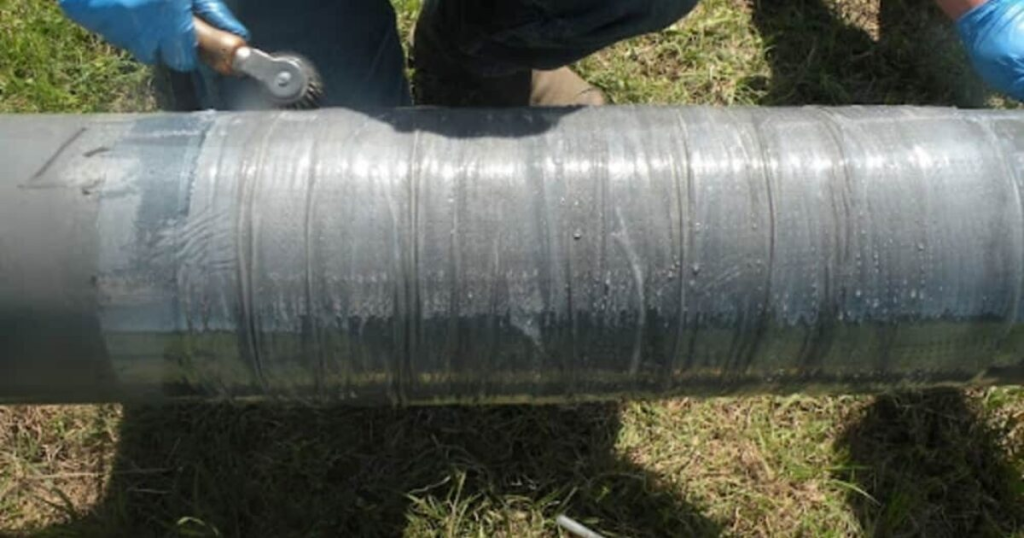
You can mark where your sewer lines are buried. This will help you and others avoid parking or digging near them. Always plan your landscaping carefully to prevent weight on your pipes.
Corrosion
Pipes can corrode over time. Older pipes made of metal are more likely to rust. Corrosion can weaken pipes. This makes them more prone to leaks and breaks.
How to Identify Corrosion
If you notice rust or brown water from your taps, it could mean corrosion. Regular inspections can help catch this early. Consider upgrading to plastic pipes, which do not corrode.
Improper Installations
Sometimes sewer lines are not installed correctly. If the slope of the pipes is wrong, waste can get stuck. Poor connections can also cause leaks. It is vital to hire professionals for installation.
Signs of Poor Installation
If you often have clogs or backups, it might be due to poor installation. Watch for slow drains or bad odors. These can be signs of a bigger problem.
Additional Causes of Sewer Line Damage
| Cause | Description | Prevention Tips |
|---|---|---|
| Old Age | Aging pipes are more susceptible to breakage and leaks. | Regular inspections and timely replacement. |
| Weather Impact | Extreme weather can lead to flooding or freezing of pipes. | Monitor weather forecasts and prepare your system accordingly. |
| Flushing Items | Flushing hard objects or sanitary products can cause blockages. | Educate household members on proper flushing habits. |
| Grease Buildup | Cooking grease can accumulate and cause clogs over time. | Dispose of grease properly instead of pouring it down the drain. |
How to Maintain Your Sewer System

Regular maintenance can help reduce the risk of sewer line damage. Here are some tips to keep your system running smoothly.
Regular Inspections
Schedule regular inspections for your sewer lines. This can help catch problems before they become big issues. A professional can check for roots, cracks, and other signs of damage.
Keep Your Yard Clean
Keep your yard free of debris. Leaves, branches, and other items can clog the system. Clear away any waste from drains and ensure nothing is blocking the sewer line.
Know Your System
Learn where your sewer lines are located. This knowledge can help you avoid damage during yard work or landscaping. If you are unsure, you can have a professional map the lines.
Use Safe Products
Be careful about what you flush or pour down the drain. Only flush toilet paper and human waste. Use safe cleaning products that won’t harm your pipes.
Be Aware of Warning Signs
Pay attention to signs of trouble. Slow drains, gurgling sounds, or bad smells are all indicators of a potential problem. If you notice these things, call a professional right away.
- Frequent clogs could indicate major issues.
- Bad odors may suggest a leak.
- Pooling water in your yard can signal a broken sewer line.
- Slow drains are often a sign of a blockage.
When to Call a Professional
Even with good maintenance, problems can still occur. Here are some times when you should call a professional.
Frequent Clogs
If you have frequent clogs, it might mean a bigger issue. A professional can inspect your sewer lines and find the root cause.
Bad Odors
If you smell sewage in your home or yard, this is a serious problem. Call a professional immediately. This could mean a leak in your sewer line.
Pooling Water
If you see pooling water in your yard, it could mean a broken sewer line. This can be dangerous and needs urgent attention.
Slow Drains
If your sinks or tubs drain slowly, this can indicate a blockage. A professional can clear the line and help prevent future issues.
For insights into septic system inspections, consider reaching out to our service experts.
Conclusion
Understanding the common causes of sewer line damage can help you protect your home. Tree roots, soil movement, heavyweight, corrosion, and improper installations are all risks to watch for.
Regular maintenance and inspections can keep your sewer system running well. If you notice any signs of trouble, do not hesitate to call a professional. Taking these steps can save you time and money in the long run.
Remember, keeping your sewer lines in good shape helps you avoid costly repairs and keeps your plumbing system flowing smoothly.
For more information or to schedule a service, contact United Sewer & Septic today.

